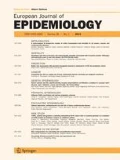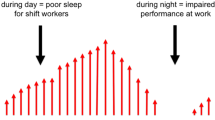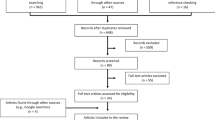Abstract
We conducted a cohort study for 2 years to examine the causal relationship between perceived job stress and mental health. Questionnaire surveys, including a 30-item General Health Questionnaire (GHQ) and a questionnaire on perceived job stress were carried out every 6 months for 2 years. To clarify the causal relationship between job stress and mental health, we followed a group of workers who initially had a GHQ score ≥ 7. Out of 462 workers who were thought to be in a healthy mental state, 282 were successfully followed for 2 years. We considered subjects who developed unhealthy mental health states (GHQ score ≥ 8) as hazardous cases. To control potential confounding factors, proportional hazard analysis was done. The overall proportion hazardous cases detected in the development of an unhealthy mental health state over two years was 55.7%. Using Cox's proportional hazard model, workers who complained of perceived job stress had a greater hazard than those without job stress. In particular, the item ‘poor relationship with superior’ showed the largest adjusted hazard ratio [95% confidence interval (CI)] of 1.51 (1.06–2.15). The item ‘too much trouble at work’ also had a significant hazardous effect on mental health with an adjusted hazard ratio (95% CI) of 1.43 (1.00–2.04). Some specific items of perceived job stress could cause mental ill health in workers.
Similar content being viewed by others
References
Shigemi J, Mino Y, Tsuda T, Babazono A, Aoyama H. The relationship between job stress and mental health at work. Ind Health 1997; 35: 29–35.
Mino Y, Tsuda T, Babazona A, et al. Depressive states in workers using computers. Environ Res 1993; 63: 651–656.
Sutherland VJ, Cooper CL. Job stress and mental health among general practitioners before and after introduction of new contract. Br Med J 1992; 304: 1545–1548.
Behar ME, Kaminski M, Peigne E, et al. Stress at work and mental health status among female hospital workers. Br J Ind Med 1990; 47: 20–28.
Eaton WW, Antohny JC, Mandel W, Garrison R. Occupation and the prevalence of major depressive disorder. J Occup Med 1990; 32: 1079–1087.
Iwata N, Okuyama Y, Kawakami Y, Saito K. Prevalence of depressive symptoms in a Japanese occupational setting: A preliminary study. Am J Public Health 1989; 79: 1486–1489.
Broadhead WE, Blazer DG, George LK, Tse CK. Depression, disability days, and days lost from work in a prospective epidemiology survey. JAMA 1990; 264: 2524–2528.
Corti DJ, Burton WN. The economic impact of depression in a workplace. JOM 1994; 36: 983–988.
Johnson JV, Hall EM. Job strain, workplace social support, and cardiovascular disease: A cross-sectional study of a random sample of the Swedish working population. Am J Public Health 1988; 78: 1336–1342.
Fletcher B. Work, Stress, Disease and Life Expectancy. 79–161, Chichester: John Wiley & Sons, 1991.
Mino Y, Shigemi J, Tsuda T, Yasuda N, Bebbington P. Perceived job stress and mental health in precision machine workers of Japan: A 2–year study. Occup Environ Med 1999; 41–45.
Kawakami N, Haratani T, Araki S. Effects of perceived job stress on depressive symptoms in blue-collar workers of an electrical factory in Japan. Scand J Work Environ Health 1992; 18: 195–200.
Karasek RA Jr. Job demands, job decision latitude, and mental strain: Implications for job redesign. Am Sci Q 1979; 24: 285–309.
Margolis BL, Kroes WH, Quinn RP. Job stress: An insisted occupational hazard. J Occup Med 1974; 16: 659–661.
Kleinberg DG. Survival Analysis: A Self-learning Text. New York: Springer, 1996.
Goldberg DP. The Action of Psychiatric Illness by Questionnaire. Maudsley Monograph No. 21. London: Oxford University Press, 1972.
Nakagawa Y, Daibo I. Japanese version of the General Health Questionnaire. Tokyo: Nihon Bunka Kagakusha, 1985 (in Japanese).
Uehata T, Yamasaki Y, Sakano J, et al. An epidemiological survey on work stress and health in various kinds of occupations of Japan, First report. Tokyo: Institute of Industrial Medicare, 1991 (in Japanese).
Kitamura T, Sugawara M, Aoki M, Shima S. Validity of the Japanese version of the GHQ among antenatal clinic attendants. Psychol Med. 1989; 19: 507–511.
Tsuchiya K, et al. Introduction to Epidemiology. (3rd ed.) Tokyo: Igaku Shoin, 1997 (in Japanese).
Rothman KJ. Modern Epidemiology. Boston: Little Brown, 1986.
Lee ET. Statistical Methods for Survival Data Analysis (2nd ed.) New York: John Wiley & Sons, 1992.
Kawakami N, Araki S, Kawashima M. Effects of job stress on occurrence of major depression in a Japanese industry: A case-control study in a cohort study. J Occup Med 1990; 32: 722–725.
Hurrel JJ, Mclaney MA. Exposure to job stress-A new psychosomatic instrument. Scand J Work Environ Health 1988; 14: 27–28.
Stansfeld SA, Future R, Shipley MJ, Marmot MG. Work characteristics predict psychiatric disorder: prospective results from the Whitehall II study. Occup Environ Med 1999; 56: 302–307.
Cox T. Stress research and stress management: Putting theory to work. Norwish: HMSO, 1993; (HSE Contract Research Report No 61/1993).
Henderson S, Byrne DG, Duncan-Jones P. Neurosis and the social environment. Sydney: Academic Press Australia, 1981.
Windle C. Test-retest effect on personality questionnaires. Educational and Psychological Measurement. 1954; 14: 617–633.
Author information
Authors and Affiliations
Rights and permissions
About this article
Cite this article
Shigemi, J., Mino, Y., Ohtsu, T. et al. Effects of perceived job stress on mental health. A longitudinal survey in a Japanese electronics company. Eur J Epidemiol 16, 371–376 (2000). https://doi.org/10.1023/A:1007646323031
Issue Date:
DOI: https://doi.org/10.1023/A:1007646323031




